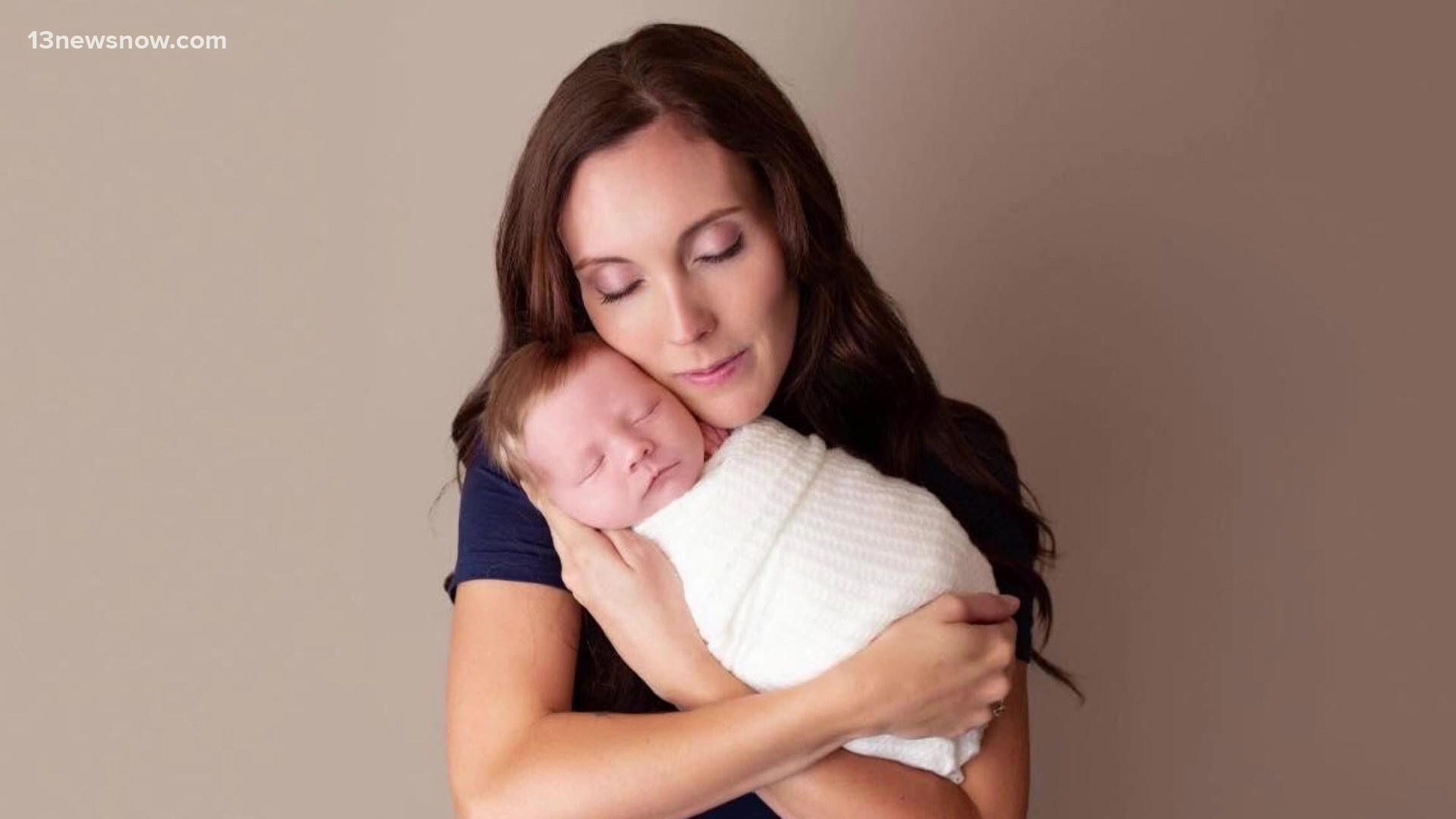VIRGINIA BEACH, Va. — A number of pregnant women are turning to a practice that some say alleviates pain during birth.
We’ve all seen the movies where a pregnant woman is rushed to the hospital after her water breaks -- that’s usually followed by a lot of stress and yelling.
It paints a pretty painful picture for women who have never given birth before.
But what if there was a natural way to ease some of that pain?
When you think of hypnosis, you probably think of someone swinging a clock back and forth and telling you you’re getting very sleepy.
"Hypnobirthing" is a little bit different.
"It’s definitely not you know what we’ve seen in movies," said mother of three Erika Bennett.
Bennett has a 5-year-old girl, a 3-year-old girl and a 9-month-old boy.
When she got pregnant with her first child, she was already worrying about labor pains.
"Initially, yes I was scared, because you have nothing to compare it to. I mean it’s a whole new experience, you know, before you’ve had a baby, and there is so much fear surrounding birth in our society," she said. "I mean think of any movie you’ve watched with birth in it. TV shows, anything. It’s screaming, it’s pain, it’s scary."
Bennett opted for a natural birth for all three of her children. During her research, she came across a practice called hypnobirthing.
"They said it can help create a more peaceful birthing experience."
For her second two children, she opted for a program called "Hypnobabies." It's generally the same idea, with a few minor differences.
So what exactly is it?
The theory is women tend to expect pain while giving birth and go into it very tense, making the labor process more difficult.
So, some say a multi-week process of deep breathing, guided visualization, hypnosis, and meditation helps the body relax before and during labor -- and that, in turn, leads to a less painful experience.
The method was popularized in the 80s, and some proponents say the practice may shorten labor, naturally manage pain, or help women who have experienced trauma, whether from a painful birth in the past or have a general fear of giving birth.
Though, it’s important to note, none of those results are guaranteed.
"At the very least, you’re taking some time out of your day to relax," Bennett said.
She said whether you do the process through a class, with a doula, or on your own with audio tracks or books, you’re always in control.
"It’s self-hypnosis, so no one is putting you into hypnosis, no one is controlling you. You’re in complete control the whole time. You can come out of it at any time. It’s definitely not, you know, what we’ve seen in movies where someone has the clock and it’s moving back and forth and they’re making you quack like a duck or anything crazy like that."
However, some research suggests for women with a history of mental illness, self-hypnosis may exacerbate certain symptoms.
Another potential problem health experts have discussed is some women who are using self-hypnosis can be so calm during labor that doctors and nurses may assume they’re earlier along in labor than they actually are.
Bennett said while giving birth to her three children was no walk in the park, she does credit hypnobirthing for preparing her and keeping her calm.
"No matter how you look at it, it’s challenging. Birth is challenging," she said. "But the hypnobirthing/hypnobabies helped reframe my mind to see birth as a natural, normal process that our bodies were designed to do."
If you want to try the method or see if it could be a good fit for you, talk to your healthcare provider to find out more.
"Whether you're going in wanting a natural birth or you’re going in thinking 'I know I want an epidural,' I think it could benefit you either way," Bennett said.

